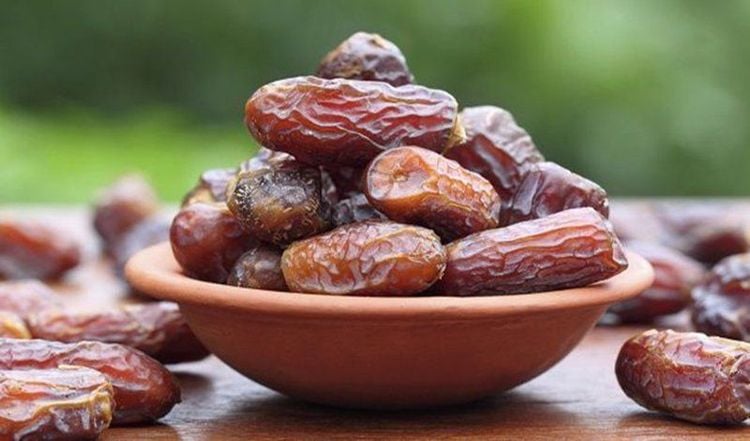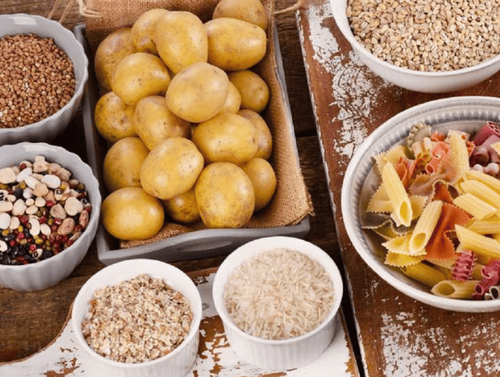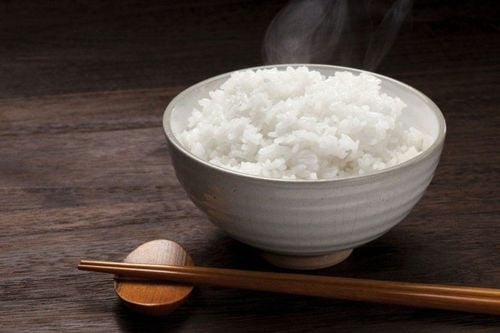This is an automatically translated article.
Dates are a popular fruit that dates back a long time. The origin of the date can be traced back to almost 5320 BC. Fruit is a staple of people in the Middle East and North Africa. Primarily grown in these regions, dates are highly beneficial due to their composition of macronutrients and many other vitamins and minerals. Here are 8 proven health benefits of dates.1. Dates
Dates are a type of fruit that grows on the date palm tree, usually native to the Middle East, although they are now also grown in the Mediterranean, Asia, the United States and Mexico. There are many different types of fruit, but the date is one of the best known, as it has a sweeter, sweeter taste and texture than other fruits. Dates grow in large clusters that hang from treetops. When ripe, their skin turns brown and wrinkled as the fruit gains more moisture. This is when they are usually harvested by hand, with someone climbing a palm tree or using a forklift.When picked, they resemble a large raisin. Despite their appearance, dates contain a lot of water. Dates have a very large seed in the middle and are inedible. Dried and fresh dates are available year-round, but the freshest variety is from November to January.
Almost all dates sold in Western countries are dried. You can tell if dates are dry based on their appearance. Wrinkled skin indicates that they are dry, while smooth skin indicates that the date is fresh. Depending on the variety, fresh dates are fairly small in size and range in color from bright red to bright yellow. Today, the two date varieties, Medjool and Deglet Noor, are the most commonly consumed. They also contain many important nutrients, which have many different advantages and uses.
The need for dates to be included in your diet is a long list. Its very beneficial advantages can be exploited by including it in your diet. In this article, we will try to introduce you to the benefits of the day for your health and also the nutritional magic it has to offer. We will also discuss some day recipes that will help you make dates a part of your diet.
2. 8 proven health benefits of dates
2.1. Very nutritious Dates have an excellent nutritional profile. Since they are dried, their calorie content is higher than most fresh fruits. The calorie content of dates is similar to that of other dried fruits, such as raisins and dried figs. Most of the calories in dates come from carbs. The rest is from a very small amount of protein. Despite being high in calories, dates contain several important vitamins and minerals along with significant amounts of fiber. A serving of about 100 grams of dates provides the following nutrients:Calories: 277 Carbs: 75 grams Fiber: 7 grams Protein: 2 grams Potassium: 20% of the recommended daily requirement Magnesium: 14% of the daily requirement. DV Copper: 18% DV Manganese : 15% DV Iron : 5% DV Vitamin B6 : 12% DV Dates are also It's packed with antioxidants, which can contribute to many of our health benefits.

Quả chà là là nguồn cung cấp dưỡng chất tuyệt vời
In a recent study, 21 people who consumed 7 dates a day for 21 days had improved bowel movements and significantly increased bowel movements compared to when they didn't eat dates.
Furthermore, the fiber in dates can be beneficial for blood sugar control. Fiber slows digestion and can help prevent blood sugar from getting too high after eating. For this reason, dates have a low glycemic index (GI), a measure of how quickly a person's blood sugar rises after eating a certain food.
2.3. High in disease-fighting antioxidants Dates provide a variety of antioxidants, some of which have a number of health benefits, including a reduced risk of certain diseases. Antioxidants protect the body's cells from free radicals, which are unstable molecules that can cause harmful reactions in the body and lead to disease. Compared to similar fruits, such as figs and prunes, dates are higher in antioxidants than both. Here are the three most powerful antioxidants in dates:
Flavonoids: Flavonoids are powerful antioxidants that can help reduce inflammation and have been studied for their ability to reduce the risk of diabetes, Alzheimer's disease, and diabetes. certain types of cancer. Carotenoids: Carotenoids have been shown to promote heart health and may also reduce the risk of eye-related disorders, such as macular degeneration. Phenolic acids: Known for their anti-inflammatory properties, phenolic acids may help reduce the risk of cancer and metabolic cardiovascular disease. 2.4. May Boost Brain Health Eating dates regularly can help improve brain function. Laboratory studies have found dates to be helpful in reducing inflammatory markers, such as interleukin 6 (IL-6), in the brain. High levels of IL-6 are associated with a higher risk of neurodegenerative diseases such as Alzheimer's.

Quả chà là có thể giúp bạn cải thiện chức năng não bộ
Dates' potential brain-boosting properties are due to their antioxidant content known to reduce inflammation, including flavonoids. However, human studies are still needed to confirm the role of dates in brain health.
2.5. May promote natural labor in expectant women Dates have been studied for their ability to promote and alleviate late labor in pregnant women. Eating lots of dates during the last few weeks of pregnancy can promote dilation of the cervix and reduce the need for labor. They can also be helpful to reduce the length of labor. In one study, 69 women who ate 6 dates a day for 4 weeks before their due date were 20% more likely to go into spontaneous labor and for a significantly shorter duration than those who didn't. Another study of 154 pregnant women found that those who ate dates were less likely to experience irritation than those who didn't.
A second study showed similar results in 91 pregnant women who consumed 70-76 grams of dates per day starting at 37 weeks of pregnancy. They went into active labor for an average of 4 hours less than those who didn't eat dates.
Although eating dates may help promote labor and reduce labor duration, more research is still needed to confirm these effects. The role of dates in pregnancy may be due to compounds that bind to oxytocin receptors and appear to mimic the effects of oxytocin in the body. Oxytocin is a hormone that causes labor contractions during childbirth. Additionally, dates contain tannins, which have been shown to help facilitate contractions. They are also a natural source of sugar and calories, which are needed to maintain energy levels during labor.
2.6. Great Natural Sweetener Dates are a great source of fructose, a natural sugar found in many fruits. For this reason, dates are very sweet and also have a caramel-like flavor. They are a great healthy substitute for white sugar in recipes due to the nutrients, fiber, and antioxidants they provide. The best way to substitute dates for white sugar is to make a date mix, as in this recipe. It is made by mixing dates with water in a blender. A good rule of thumb is to replace sugar with date flour in a 1:1 ratio. For example, if a recipe calls for 1 cup of sugar, we can substitute with 1 cup of date powder. It is important to note that although dates are high in fiber and nutrients, they are still quite high in calories and are best consumed in moderation.

Quả chà là có thể thay thế đường trắng trong nấu ăn nhờ vị ngọt tự nhiên
Bone health: Dates contain a number of minerals including: phosphorus , potassium, calcium and magnesium. All of these substances have been studied for their ability to prevent bone-related diseases such as osteoporosis. Steady blood sugar control: Dates have the ability to help regulate blood sugar due to their low glycemic index (GI), fiber, and antioxidants. Therefore, eating dates may be beneficial for diabetes control. While these potential health benefits are promising, more human studies are needed before definitive conclusions can be drawn.
2.8. Easy to Add to Everyone's Diet Dates are an extremely versatile food and a delicious snack. They are often paired with other foods, such as nut butters or soft cheeses. Dates are highly sticky, which makes them useful as a binder in baked goods, such as cookies. We can also combine dates with other nuts like almonds to form healthy snacks. Alternatively, we can also use dates to sweeten sauces, such as salad dressings and sauces, or blend them into smoothies and oatmeal.
It is important to note that dates are high in calories and their sweet taste makes it easy to overeat. For this reason, you should only consume them in moderation.
Dates are a very healthy fruit to include in one's diet. They're packed with nutrients, fiber, and antioxidants, all of which can provide health benefits, from improved digestion to reduced risk of disease. There are several ways to add dates to the diet. One popular way is to use dates as a natural sweetener in various dishes or as a healthy snack. All in all, dates are well worth adding to one's diet, for their taste as well as the nutrition they provide.
Please dial HOTLINE for more information or register for an appointment HERE. Download MyVinmec app to make appointments faster and to manage your bookings easily.
Reference sources: healthline.com, medlife.com












